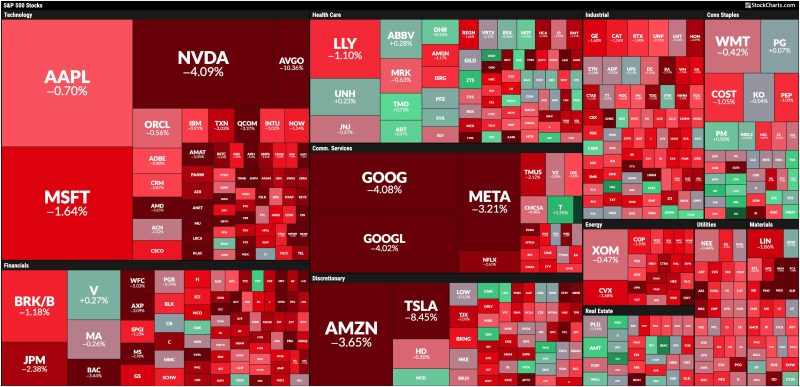Broad-Based Stock Market Selloff: How to Position Your Portfolio
Diversification Is Key
Diversification is a fundamental strategy when it comes to weathering stock market selloffs. By spreading your investments across different asset classes, industries, and regions, you can reduce the impact of a downturn affecting any single sector or market. This approach helps to cushion your portfolio from severe losses during turbulent times, as different assets may respond differently to market conditions.
Consider Defensive Stocks
Defensive stocks are those that tend to be less affected by economic downturns and market volatility. Companies in sectors such as utilities, consumer staples, and healthcare are examples of defensive stocks. These companies offer products and services that are considered essential, regardless of the overall economic climate. Including defensive stocks in your portfolio can help provide stability and protection during a broad-based stock market selloff.
Review Your Risk Tolerance
During periods of market turbulence, it’s crucial to revisit your risk tolerance and reassess your investment goals. If the prospect of a broad-based stock market selloff is causing you sleepless nights, it may be a sign that your portfolio is too aggressively positioned. It could be worth considering reallocating some of your assets into more conservative investments to reduce your exposure to market fluctuations.
Stay Informed and Stay Calm
It’s important to remain informed about market developments but also to avoid making impulsive investment decisions based on fear or panic. Emotions can often lead to irrational investment choices that may not align with your long-term financial goals. Instead, focus on the underlying fundamentals of your investments and stay the course unless your investment thesis has fundamentally changed.
Seek Professional Advice
If navigating a broad-based stock market selloff seems overwhelming or if you’re uncertain about how to reposition your portfolio, seeking advice from a financial professional can provide valuable insights and guidance. A financial advisor can help you evaluate your current holdings, assess your risk tolerance, and develop a strategy to safeguard your investments during turbulent market conditions.
In conclusion, a broad-based stock market selloff can be a challenging time for investors, but with careful planning and a diversified portfolio, you can navigate these turbulent waters successfully. By staying informed, reviewing your risk tolerance, considering defensive stocks, and seeking professional advice when needed, you can position your portfolio to weather market downturns and emerge stronger on the other side.
